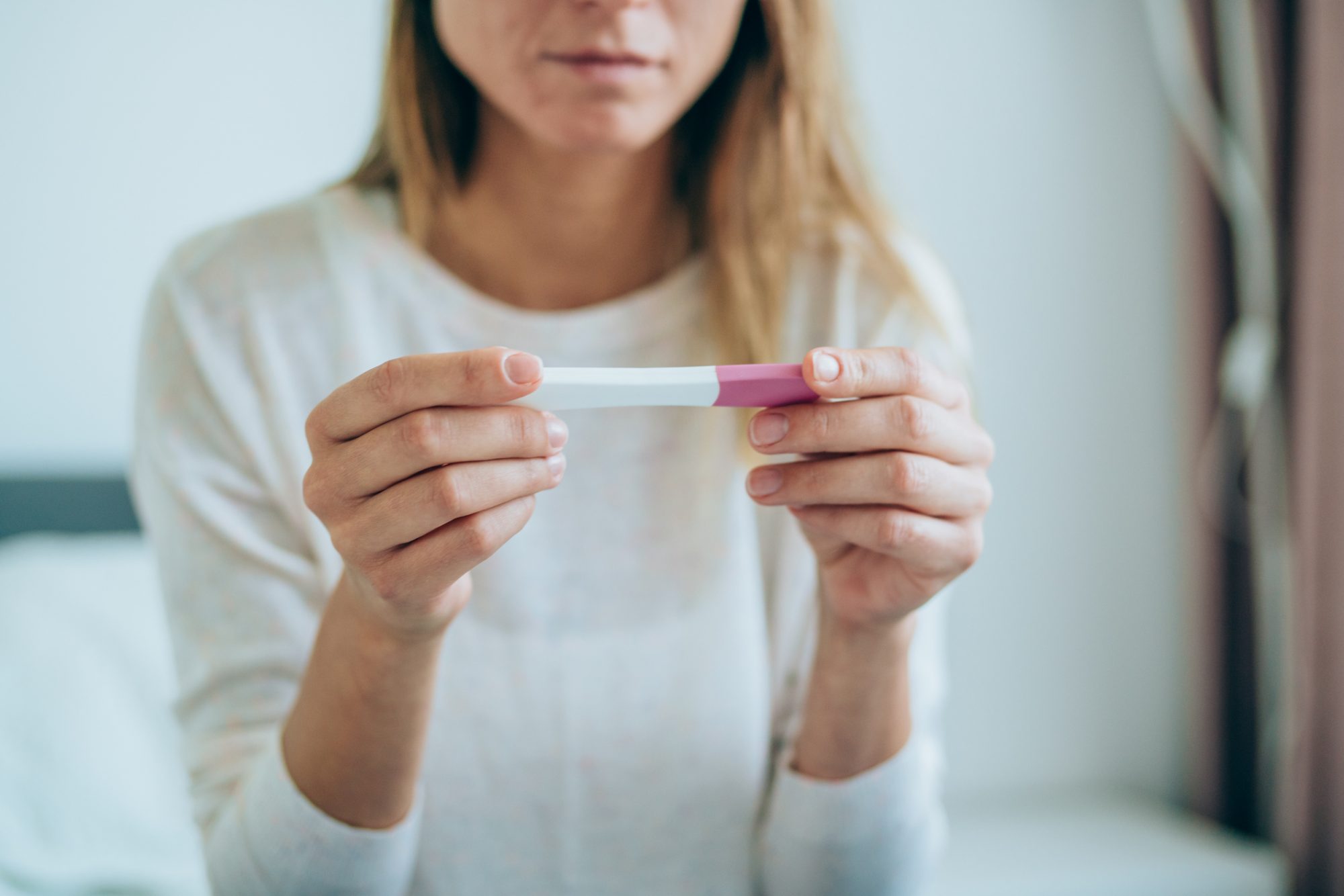"Am I fertile?" It's a question many women have when trying to conceive. That's because one in eight couples struggle with infertility, or the inability to get pregnant despite having regular unprotected sex. Experts usually diagnose infertility if a couple unsuccessfully tries to conceive for one year (or 6 months if the woman is over 35 years old).
Infertility is often silent, but sometimes, your body gives signs you can't get pregnant. If you notice any of the five symptoms listed below, give your doctor a call. They'll determine whether you have a condition that affects fertility, and they'll treat the underlying problem.
It's important to note that 85 to 90 percent of infertile couples are able to conceive with conventional treatment, according to the American Society of Reproductive Medicine. So even if you have these signs of infertility in women, there's a chance you'll get pregnant one day!

1. Not Having a Period
After you stop taking birth control, your body needs a couple of months to regulate. But if you don't get a period after three months, consult a specialist. "No periods suggests that a woman is not ovulating and has little chance to conceive without assistance," says Lorna Marshall, M.D., FACOG, a reproductive endocrinologist at Pacific NW Fertility in Seattle. "We like to intervene early with medications to stimulate ovulation."
The solution might be as simple as popping a daily pill called Clomid to stimulate ovulation; if that doesn't work, the next steps are injectable medications, intrauterine insemination (IUI), or in vitro fertilization (IVF).
2. Irregular Periods
If you don't get your period regularly, you may never tell when or if you're going to ovulate. "Cycles that come sporadically are indicative of an underlying disorder related to ovulating, which can make conception very challenging," says Sheeva Talebian, M.D., a reproductive endocrinologist at Reproductive Medicine Associates of New York. "The reasons are similar to a complete lack of periods: polycystic ovary syndrome (PCOS), thyroid disorders, and hypothalamic amenorrhea," in which the brain's hormone-sending signals are off. Irregular cycles may also be a sign of diminished ovarian reserve caused by endometriosis or early ovarian failure.
3. Bleeding Between Periods
Generally, you should only bleed when you have your period. "Bleeding in between your cycles or after intercourse can indicate a uterine polyp or fibroid, or a cervical lesion," says Dr. Talebian. Besides the issue of getting pregnant, a doctor should make sure these symptoms don't indicate something more serious like cancer, although this is rarely the case.
4. Very Heavy Periods
If you go through more than one pad or tampon an hour for several hours, pass blood clots larger than the size of a quarter, or bleed for more than seven days, your period is unusually heavy. "This can be a sign of uterine fibroids," says Marcy F. Maguire, M.D., FACOG, a reproductive endocrinologist at Reproductive Medicine Associates of New Jersey. "Heavy periods are also associated with certain bleeding disorders or endocrine abnormalities." Fibroids can be shrunken or removed if they inhibit pregnancy, and blood disorders can be managed with medication.
5. Pelvic Pain
If you have bad period cramps, pain throughout your cycle, or discomfort after sex, you could be diagnosed with endometriosis. "With endometriosis, the tissue that's supposed to line the uterine cavity is found outside the uterus in the pelvis," Dr. Maguire says. "Endometriosis can lead to scarring of pelvic structures, reducing fertility and increasing the risk of ectopic pregnancy." In addition, Dr. Marshall says, "Endometriosis may diminish a woman's egg supply, so we may recommend a faster-paced evaluation and treatment."
That said, if you have pelvic pain with fever and an abnormal discharge, it could be a sign of infection, which may also lead to scarring. "Pelvic infection puts a woman at significant risk of tubal blockage," Dr. Marshall says. "A test to see if the tubes are open should be done soon after the couple starts to attempt conception."

